Contents: The world around us
VOCABULARY: Activity, Adventure, Beach, Camping, Guesthouse, Cottage, Cruise, Sightseeing, Hostel, Package
LANGUAGE DEVELOPMENT: -ing form and infinitives
1. VOCABULARY
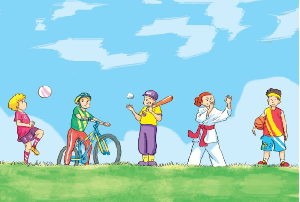
the doing of something, or something that you are doing, have done, or could do

an unusual, exciting, and possibly dangerous activity, trip, or experience, or the excitement
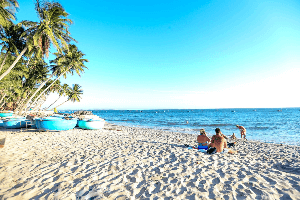
a flat, sloping area of sand or small stones beside the sea or a lake

the act of staying and sleeping in an outside area for one or more days and nights, usually in a tent

a small house near a larger one, where guests who are invited to the larger house can stay

a small house, usually away from a city or town

to travel at a continuous speed

the act of visiting interesting places, esp. while on vacation

a large house where people can sleep for little money

a box or container in which something is put, esp. to be sent or sold, or a group of objects wrapped together
2. LANGUAGE DEVELOPMENT
Verb patterns: verb + infinitive or verb + -ing?
Verbs followed by a to-infinitive
Some verbs can be followed immediately
by a to-infinitive:
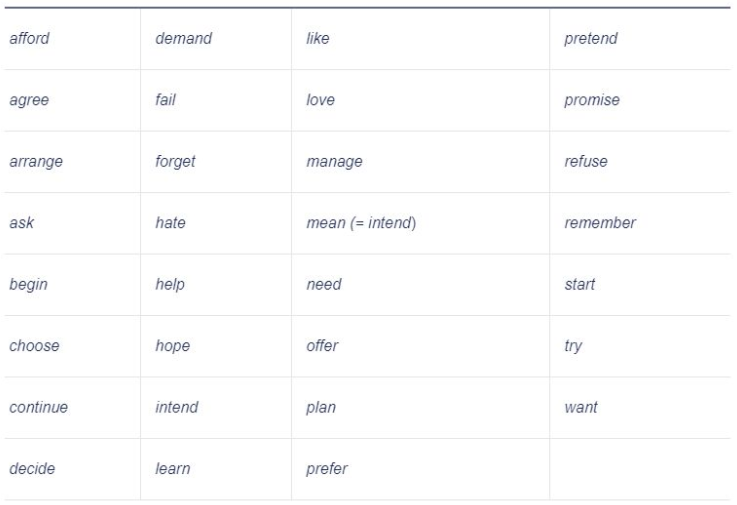
For example,
I can’t afford to go on holiday.
It began to rain.
She hopes to go to university next year.
My mother never learnt to swim.
Did you remember to ring Nigel?
Verbs followed by -ing
-ing but not to-infinitive
Some verbs are normally followed by the -ing form,
not the to-infinitive:
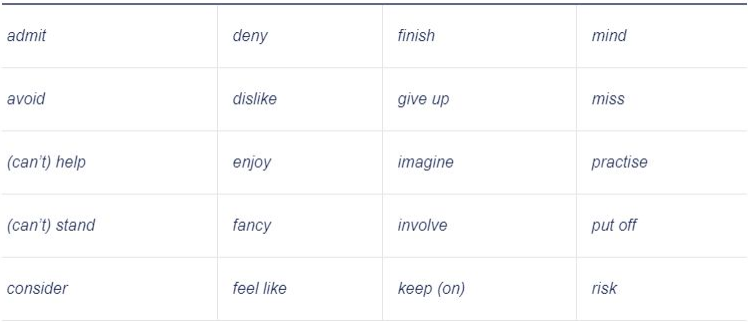
For example,
I always enjoy cooking.
Not: I always enjoy to cook.
We haven’t finished eating yet.
Not: We haven’t finished to eat.
She keeps changing her mind about the wedding.
Verbs followed by a to-infinitive or -ing
Hate, like, love, prefer
Hate, like, love and prefer can be followed either by -ing or a to-infinitive. The difference in meaning is often small. The -ing form emphasises the verb itself. The to-infinitive puts the emphasis more on the preference for, or the results of, the action.
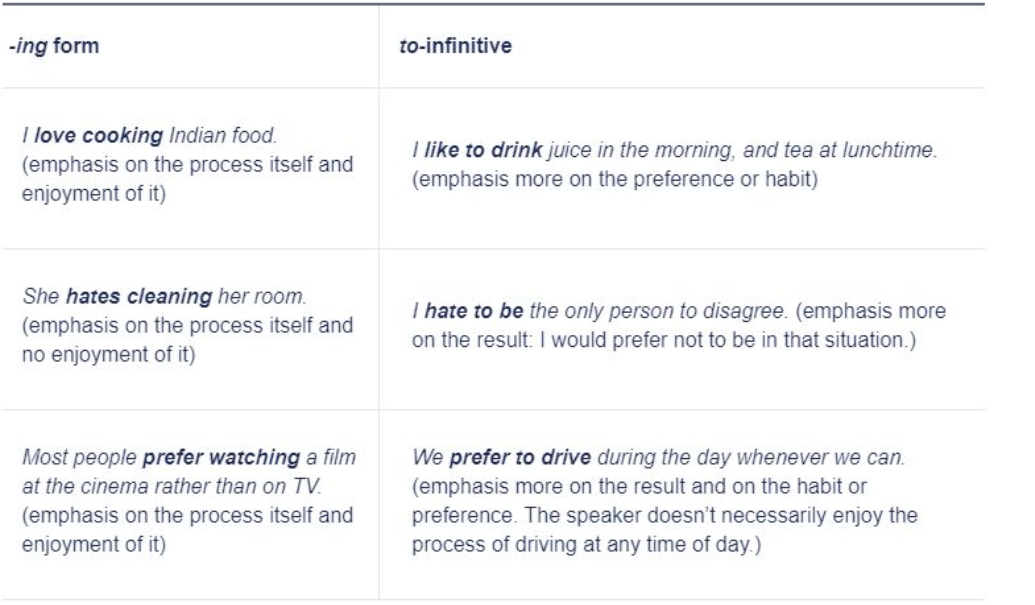
For example,
Hate, like, love, prefer with would or should
When hate, like, love and prefer are used with would or should, only the to-infinitive is used, not the -ing form:
She’d love to get a job nearer home.
Not: She’d love getting a job nearer home.
Would you like to have dinner with us on Friday?
Verbs followed by a direct object and a to-infinitive
Some verbs are used with a direct object (underlined) followed by a to-infinitive.
These verbs include:

For example,
I advised him to get a job as soon as possible.
Did Martin teach Gary to play squash?
They want me to go to Germany with them.

